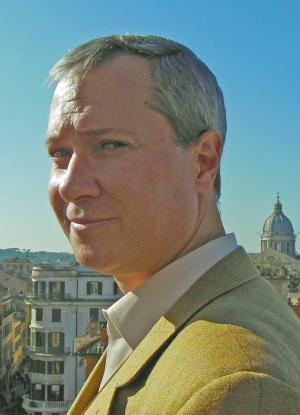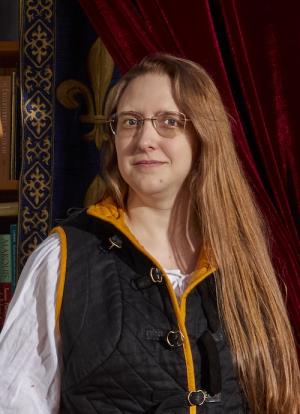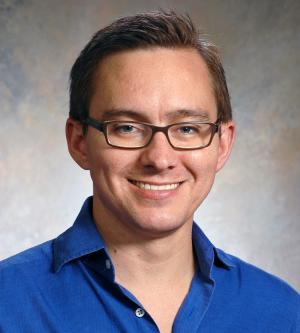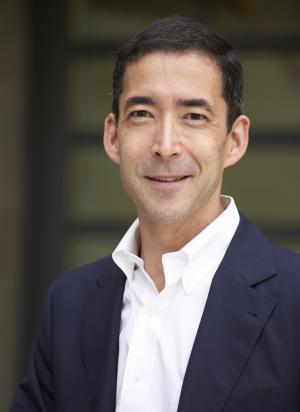
University of Cambridge, PhD '93
BIOGRAPHY
Jonathan Hall's earlier research was focused on the cultural and social history of ancient Greece, with a particular emphasis on the construction, meaning, and functions of ethnic identity among Greek communities. His first book, Ethnic Identity in Greek Antiquity (Cambridge, 1997) received the 1999 Charles J. Goodwin Award for Merit from the American Philological Association, while Hellenicity: Between Ethnicity and Culture (Chicago, 2002) was the recipient of the 2004 Gordon J. Laing Award from the University of Chicago Press. He has also tackled questions of historical method which are explored in History of the Archaic Greek World, ca. 1200–479 BCE 2nd edn. (Chichester, 2014), which has been translated into Polish and Greek, and in Artifact and Artifice: Classical Archaeology and the Ancient Historian (Chicago, 2014). His most recent book is Reclaiming the Past: Argos and its Archaeological Heritage in the Modern Era (Ithaca, 2021). He is currently working on a book about what it meant to be Greek in the Iron Age and on an archaeological history of Corfu from prehistory to the present day. He is also the author of a series of articles and chapters concerning the early polis, Greek colonization, and cultural identities. In 2009 he was awarded the Quantrell Award for Excellence in Undergraduate Teaching.
Recent Research / Recent Publications
- The Connected Iron Age: Interregional Networks in the Eastern Mediterranean, 900-600 BCE, co-edited with James F. Osborne. University of Chicago Press, 2022.
- Reclaiming the Past: Argos and its Archaeological Heritage in the Modern Era. Ithaca: Cornell University Press, 2021.
- Artifact and Artifice: Classical Archaeology and the Ancient Historian. Chicago: University of Chicago Press, 2014.
- A History of the Archaic Greek World, ca. 1200–479 BCE, 2nd ed. Chichester: Wiley-Blackwell, 2014.
- A History of the Archaic Greek World, ca. 1200–479 BCE, 1st ed. Malden, MA: Blackwell, 2007. [Also translated into Polish and Greek.]
- Hellenicity: Between Ethnicity and Culture. Chicago: University of Chicago Press, 2002.
- Ethnic Identity in Greek Antiquity. Cambridge: Cambridge University Press, 1997.
- “Colonizing the Past: The Case of Argos in the Late Eighteenth and Early Nineteenth Centuries,” in The Routledge Handbook of Classics and Postcolonial Theory, edited by K. Blouin and B. Akrigg, 577–590. London and New York: Routledge, 2024.
- “Argos,” in The Oxford History of the Archaic Greek World. Vol. I: Argos to Corcyra, edited by P. Cartledge and P. Christesen, 1–94. Oxford: Oxford University Press, 2024.
- “Politics,” in A Companion to Greek Lyric, edited by L. Swift, 76–88. Chichester: Wiley-Blackwell, 2022.
- "The archaeology of 'celebrities' in the Greek and Roman worlds," Acta ad archaeologiam et artium historiam pertinentia 30 (2018): 310–27.
- "Hellenic Homelands: The Greek Diaspora, Ancient and Modern." In An Age of Experiment: Classical Archaeology Transformed (1976–2014), edited by L. Nevett and J. Whitley, 235–46. Cambridge: MacDonald Institute for Archaeological Research, 2018.
- "The Determinacy of Space and State formation in Archaic Greece." In Eurasia at the Dawn of History: Urbanization and Social Change, edited by M. Fernández-Götz and D. Krausse, 279–90. Cambridge: Cambridge University Press, 2017.
- "Quanto c’è di 'greco' nella 'colonizzazione greca'?" In Conceptualizing Early Colonization, edited by L. Donnellan, V. Nizzo, and G. J. Burgers, 51–59. Brussels: Belgisch Historisch Instituut te Rome, 2016.
- "Ancient Greek Ethnicities: Towards a Reassessment," Bulletin of the Institute of Classical Studies 58, no. 2 (2015): 15–29.
- "Federalism and Ethnicity.” In Federalism in Greek Antiquity, edited by H. Beck and P. Funke, 30–48. Cambridge: Cambridge University Press, 2015.
- "The Rise of State Action in the Archaic Age." In A Companion to Ancient Greek Government, edited by H. Beck, 9–21. Chichester: Wiley-Blackwell, 2013.
- "Early Greek Settlement in the West: The Limits of Colonialism." In Theatre Outside Athens: Drama in Greek Sicily and South Italy, edited by K. Bosher, 19–34. Cambridge: Cambridge University Press, 2012.
- "Imagining a Community beyond the Polis: The Emergence and Transformation of the Ethnos." In Forme sovrapoleiche e interpoleiche di organizzazione nel mondo greco antico, edited by M. Lombardo, 28–37. Galatina: Congedo, 2011.
- "Autochthonous Autocrats: The Tyranny of the Athenian Democracy." In Private and Public Lies: The Discourse of Despotism and Deceit in the Ancient World, edited by K.O. Chong-Gossard, F. Vervaet, and A. Turner, 11–28. Leiden: Brill, 2010.
- "Foundation Stories." In Greek Colonisation. An Account of Greek Colonies and Other Settlements Overseas in the Archaic Period, vol 2, edited by G. Tsetskhladze, 383–426. Leiden: Brill, 2008.
- "Politics and Greek Myth." In The Cambridge Companion to Greek Mythology, edited by R. Woodard, 331–354. Cambridge: Cambridge University Press, 2008.
- "International Relations." In The Cambridge History of Greek and Roman Warfare, vol 1: Greece, the Hellenistic World and the Rise of Rome, edited by P. Sabin, H. van Wees, and M. Whitby, 85–107. Cambridge: Cambridge University Press, 2007.
- "Arcades His Oris: Greek Projections on the Italian Ethnoscape?" In Cultural Borrowings and Ethnic Appropriations in Antiquity, edited by E. Gruen. Stuttgart: Franz Steiner, 2005.
- "Culture, Cultures, and Acculturation." In Das Archaische Griechenland: Interne Entwicklungen, Externe Impulse, edited by R. Rollinger and C. Ulf. Berlin: Akademie Verlag, 2004.
- "The Dorianization of the Messenians." In Helots and their Masters in Laconia and Messniea: Histories, Ideologies, Structures, edited by N. Luraghi and S.E. Alcock. Washington, DC: Center for Hellenic Studies, 2003.
- "Contested Ethnicities: Perceptions of Macedonia within Evolving Definitions of Greek Identity." In Ancient Perceptions of Greek Ethnicity, edited by I. Malkin. Washington, DC: Center for Hellenic Studies, 2001.
- "Sparta, Lakedaimon and the Nature of Perioikic Dependency." In Further Studies in the Ancient Greek Polis, edited by P. Flensted-Jensen. Stuttgart: Franz Steiner, 2000.
- (With Catherine Morgan) "Achaian Poleis and Achaian Colonisation." In Introduction to an Inventory of Poleis. Acts of the Copenhagen Polis Centre 3, edited by M. H. Hansen. Copenhagen: Det Kongelige Danske Videnskabernes Selskab, 1996.
- "The Role of Language in Greek Ethnicities." Proceedings of the Cambridge Philological Society 41 (1995).
- "How Argive was the "Argive" Heraion? The Political and Cultic Geography of the Argive Plain, 900–400 BC." American Journal of Archaeology 99 (1995).
- —Appeared on the podcast Byzantium and Friends, Episode 75
- Co-organizes international conference, "The Connected Iron Age: Interregional Networks in the Eastern Mediterranean, 900–600 BCE"
- Publishes Artifact and Artifice: Classical Archaeology and the Ancient Historian (Chicago, 2014)
- Publishes A History of the Archaic Greek World, ca. 1200–479 BCE, 2nd edition (Wiley-Blackwell, 2014)

Harvard University, PhD '09
BIOGRAPHY
My research on intellectual history, or the history of ideas, is my way of exploring how history and thought shape each other over time. The Italian Renaissance is a perfect moment for approaching this question because at that point the ideas about science, religion, and the world that had developed in the Middle Ages suddenly met those of the ancient world, reconstructed from rediscovered sources. All at once many beliefs, scientific systems, and perceived worlds clashed, mixed, and produced an unprecedented range of new ideas, which in turn shaped the following centuries and, thereby, our current world.
My current research focuses on patterns in the history of the real motives of censors over space and time, from antiquity to the digital age, especially the Inquisition and early modern censorship, and 20th century censorship of popular media. The enormous impact of Orwell's Nineteen Eighty-Four has led modern people to imagine censorship working the way his Ministry of Truth does: imposed top-down on a populace, with vast resources, a stable, long-term plan, and the goal of controlling society, stifling thought, and destroying information. But the real actions and records of past censors reveal that the vast majority of real censorship has inverse qualities: shaped by bottom-up social anxiety, constantly desperate for funds and personnel, hastily improvised in response to a perceived crisis, constantly transformed ad hoc as the perceived threat changes, and (from the point of view of the censors) aiming to protect vulnerable individuals, and to encourage self-censorship rather than destroying extant information. Only by examining the real motives which have made people say "Yes" to censorship over space and time can we understand what patterns help it flourish, and ways to combat it. I am especially interested in how innovations in information technology trigger waves of new censorship, a topic I explored in a dialog series and museum exhibit: voices.uchicago.edu/censorship.
As a novelist (science fiction, fantasy, and historical fiction), I am also very interested in how to better connect the worlds of history research and speculative fiction, both to innovate pedagogically, and to help new improved historical narratives and correctives make it into the books, games, and TV which are what shape most people's first impressions of history, but often draw on histories that are more than half a century out of date. I have a forthcoming collection of essays on history and genre fiction, Diaspora of Time: Conversations on Science Fiction and Fantasy coming from Tor Books, several publications on history in SF&F, comics, anime & manga, and am a nonfiction columnist for Strange Horizons. I also employ creative writing, role-playing and LARP in my classes, and work with SFWA (the Science Fiction Writers of America) on helping to connect writers with historians and their research. I also have a forthcoming popular press book, Why Renaissance? Invention of a Golden Age, which aims to present to a general audience how and why the ideas of a golden Renaissance and bad Middle Ages were invented, and how historians are still working to improve and update them, and to update popular conceptions of Renaissance humanism.
My first scholarly book, Reading Lucretius in the Renaissance, explores scholars' use of Lucretius's Epicurean didactic poem De Rerum Natura from its rediscovery in 1417 to 1600, focusing on the challenges its atomistic physics posed to Christian patterns of thought. In a period when atheism was often considered a sign of madness, the sudden availability of a sophisticated system that explained natural phenomena in nontheistic ways and that argued powerfully against the immortality of the soul, the afterlife, and a creator God threatened to supply the one weapon unbelief had lacked in the Middle Ages: good answers. At the same time, humanist scholars who idealized ancient Rome were eager to study a poem whose language and structure so often anticipated their beloved Aeneid. My book uncovers humanist methods for reconciling Christian and pagan philosophy and shows how atomism and ideas of emergent order and natural selection, so critical to our current thinking, became situated in Europe's intellectual landscape at the beginning of the scientific transformations of the seventeenth century. In it I employ a new quantitative method for analyzing marginalia in manuscripts and printed books, whose results expose how changes in scholarly reading practices over the course of the sixteenth century, fostered by the growth of printing, controlled the circulation of texts and gradually expanded Europe's receptivity to radical science, setting the stage for the scientific revolution.
I also work extensively on classical transformations, i.e., how, thanks to humanist enthusiasm for reconstructing the golden age of ancient Greece and Rome, material received from the classical and medieval worlds was transformed in Renaissance hands and in turn transformed the Renaissance world. I am working on a long-term project on the imagined antiquity believed in by Renaissance humanists, and how their efforts to reconstruct the ancient world aimed, not at the ancient world as we now understand it, but at a very different ancient world whose character can be reconstructed from Renaissance paratexts, imitations, paintings, period translations, biographies of ancients, forgeries, and spuria which we often dismiss today as simple errors. Along with the Classical Transformations Group at Texas A&M University and the Transformationen der Antike group at the Humboldt-Universität zu Berlin, I am working to change the way we think about reception studies, and bring greater attention to how each period transforms and is transformed by the materials it inherits from earlier eras.
Much of my research has been conducted in rare books libraries, especially in Rome and Florence, where I worked with Renaissance copies of classical texts, both manuscripts and printed books. I have been a Fulbright scholar in Italy and a graduate reader and later a fellow at the Villa I Tatti Harvard University Center for Italian Renaissance Studies. I completed my PhD and graduate teaching at Harvard University, and taught at Texas A&M University before coming to the University of Chicago. My article "Reading Lucretius in the Renaissance" (Journal of the History of Ideas, 73:3, [July 2012]: 395–416) won the 2013 I Tatti Prize for Best Article by a Junior Scholar, and the prize for the best article in the JHI.
All my projects stem from my overall interest in the relationship between ideas and historical change. Our fundamental convictions about what is true evolve over time, so different human peoples have, from their own perspectives, lived in radically different worlds. The universe which Thomas Aquinas thought he occupied was not the universe in which Plato or Machiavelli or Freud believed they lived, and such beliefs in turn shaped the futures they tried to build out of what they inherited from the past. Our own current efforts to build the future are likewise predicated on what we believe is true, but what we believe is not what any past culture has believed, nor what any future cultures will believe.
Recent Research / Recent Publications
- Inventing the Renaissance: The Myth of a Golden Age. Chicago, IL: The University of Chicago Press, 2025.
- Reading Lucretius in the Renaissance. Cambridge, MA: Harvard University Press, I Tatti Renaissance Studies Series, 2014.
- Coauthored with James Hankins. The Recovery of Classical Philosophy in the Renaissance, a Brief Guide. Florence: Istituto Nazionale di Studi sul Rinascimento, 2007.
- “The Persecution of Renaissance Lucretius Readers Revisited,” in Philip Hardie, Valentina Prosperi, and Diego Zucca eds., Lucretius Poet and Philosopher: Background and Fortunes of ‘De Rerum Natura’, De Gruyter, 2020.
- “Humanist Dissemination of Epicureanism,” in The Oxford Handbook of Epicureanism, ed. Phillip Mitsis. Oxford: Oxford University Press, 2020.
- “The Effects of Authorial Strategies for Transforming Antiquity on the Place of the Renaissance in the Current Philosophical Canon,” in Beyond Reception: Renaissance Humanism and the Transformation of Classical Antiquity, eds. Patrick Baker, Johannes Helmrath, and Craig Kallendorf, 2019.
- “Humanist Lives of Classical Philosophers and the Idea of Renaissance Secularization: Virtue, Rhetoric, and the Orthodox Sources of Unbelief.” Renaissance Quarterly, 70, 3 (2017), 935-76.
- “On Progress and Historical Change,” KNOW: A Journal on the Formation of Knowledge, Fall 2017, pp. 319-337.
- “The Active and Monastic Life in Humanist Biographies of Pythagoras,” Forms and Transfers of Pythagorean Knowledge: Askesis—Religion—Science, eds. Almut-Barbara Renger & Alessandro Stavru. Harrassowitz: Wiesbaden, 2016.
- “The Recovery of Stoicism in the Renaissance,” in The Routledge Handbook of the Stoic Tradition, ed. John Sellars. New York: Routledge, 2016, pp. 117-132.
- "T. Lucretius Carus, Addenda et Corrigenda." In Catalogus Translationum et Commentariorum: Mediaeval and Renaissance Latin Translations and Commentaries, vol. 10. Washington D.C.: Catholic University of America Press, 2014.
- "The Recovery of Stoicism in the Renaissance." In The Routledge Handbook to the Stoic Tradition, edited by John Sellars, forthcoming.
- "The Use and Defense of the Classical Canon in Pomponio Leto's Biography of Lucretius." In Vitae Pomponianae, Biografie di Autori Antichi nell’Umanesimo Romano (Lives of Classical Writers in Fifteenth-Century Roman Humanism), proceedings of a conference hosted by the Danish Academy in Rome and the American Academy in Rome, April 24, 2013, Renaessanceforum (Forum for Renaissance Studies, Universities of Aarhaus & Copenhagen), 2014.
- "Reading Lucretius in the Renaissance." The Journal of the History of Ideas 73, no. 3 (July 2012): 395–416.
- Terra Ignota (novel series, four volumes starting with volume 1 Too Like the Lightning), Tor Books 2016-21.
- “Writing/Realizing Disability + Power,” Strange Horizons, August 2022.
- “The Protagonist Problem,” with Jo Walton, Uncanny Magazine, 2021.
- “Censorship and Genre Fiction: Let’s Broaden our Broader Reality.” Uncanny Magazine, May 2020.
- "Ada Palmer and the Weird Hand of Progress” profile in Wired Magazine, 2022.
- "Why Trump's Decision to Intervene in Campus Speech Policies Is So Dangerous," op-ed, Washington Post, Mar. 28, 2019.
- "Why Is Silcon Valley So Obsessed with the Virtue of Suffer?" New York Times, Mar. 26, 2019.
- "How #Article13 Is Like the Inquisition: John Milton against the EU #CopyrightDirective," Boing Boing, Mar. 24, 2019
- Profile in the university's alumni magazine
- Reviews Enlightenment Now for Harvard Magazine
- Launches censorship research project with Adrian Johns
- Q&A with Chicago Magazine on third novel
- NPR reviews Too Like the Lightning
- Scientific American interview with Palmer about her novel
- Edits Volume of Student Essays as Part of Graduate Colloquium
- Publishes Reading Lucretius in the Renaissance (Harvard, 2014)

Princeton University, PhD '09
BIOGRAPHY
A historian of the Iranian world in late antiquity, ca. 200–800 CE, Payne's research focuses primarily on the dynamics of Iranian imperialism, specifically how the Iranian (or Sasanian) Empire successfully integrated socially, culturally, and geographically disparate populations from Arabia to Afghanistan into enduring political networks and institutions.
His recent book, A State of Mixture: Christians, Zoroastrians, and Iranian Political Culture in Late Antiquity, explores the problem of religious diversity within the empire, showing how Syriac-writing Christians could create a place for themselves in a political culture not of their own making. He is currently at work on the role of Zoroastrian religious institutions and the intersection of ideological and material dimensions in Iranian history.
Recent Research / Recent Publications
- Co-editor, with Marcelo Campagno, Carlos García Mac Gaw, et al., Desigualdades Antiguas: Economía, Cultura y Sociedad en el Oriente Medio y el Mediterráneo (Buenos Aires, 2023).
- Co-editor with Rhyne King, The Limits of Empire in Ancient Afghanistan. Rule and Resistance in the Hindu Kush, circa 600 BCE–600 CE (Wiesbaden: Harrassowitz 2020).
- Editor, Visions of Community in the Post-Roman World: The West, Byzantium and the Islamic World, 300–1100 (Routledge, 2016).
- Co-editor with Myles Lavan and John Weisweiler, Cosmopolitanism and Empire: Universal Rulers, Local Elites, and Cultural Integration in the Ancient Near East and Mediterranean (OUP, 2016)
Awards for A State of Mixture: Christians, Zoroastrians, and Iranian Political Culture in Late Antiquity (California, 2015):
- World Award for Book of the Year, Islamic Republic of Iran
- Jacques Barzun Prize in Cultural History, American Philosophical Society
- Ehsan Yarshater Prize, International Society for Iranian Studies
- Award for Excellence in the Study of Religion, American Academy of Religion
Named a Neubauer Family Assistant Professor in 2013.

University of Michigan, PhD'96
Chair, Department of Classics (2017-2020, 2021-2024)
Faculty Member, Renaissance Studies
Faculty Member, Institute on the Formation of Knowledge
Recent Research / Recent Publications
- Appointed Extraordinary Professor in the Department of Ancient Studies, Stellenbosch University (January 2024 – December 2026)
- Elected member of the American Academy of Sciences and Letters (2024)
- Visiting Professor, Faculté de Droit, Université Panthéon-Assas – Paris II (March 2022)
- Published edited volume, A Cultural History of Ideas in Classical Antiquity (2022) with Thomas Habinek and Giulia Sissa
- Published edited volume, Roman and Local Citizenship in the Long Second Century (2021), with Myles LAvan
- Published edited volume, The New Late Antiquity: Intellectual Profiles (2021), with Marco Formisano
- Published edited volume, The Discovery of the Fact (2020), with William P. Sullivan, PhD'20 in Classics and History